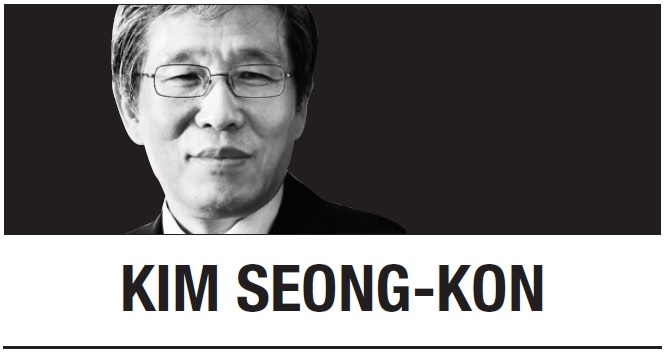

Recently, I came across an intriguing article by a professor of sociology at Yonsei University. In that persuasive essay, the writer claimed that humans fought and won the battle with fascism in the early 20th century and with communism in the late 20th century. According to him, the great war of humanity is now against populism in the 21st century. Indeed, populism is seriously undermining democracy and human civilization these days.

The term “populism,” which originally developed in the late 19th century, is used mostly as a pejorative. However, in the 1960s, when popular culture was predominant, the term briefly enjoyed fame. For example, when Susan Sontag called the famous liberal culture critic Leslie Fiedler a “populist” in her conversation with him, she meant “a postmodern advocate of pop culture,” as opposed to the elite culture of literary modernism.
Initially, populism was a narrowly defined concept that referred to the idea of “the people against the elite.” Gradually, however, the concept of populism has become stretched, especially in the 21st century, as politicians began using populism to flatter voters and win elections. Unlike fascism or communism, populism is widespread all over the world because it transcends boundaries between “left” and “right,” integrating both fascism and communism.
As a result, there are both left-wing populists and right-wing populists. Both of them entice people with the idea that “the people” are morally good and “the elite” are corrupt. Populists perceive the elite as the establishment, with its vested rights and privileges. Therefore, populists call for a social revolution to overthrow the establishment and punish the privileged elite.
Populist politicians condemn the elite, criticizing them for pursuing their own interests or the interests of big business or foreign countries rather than the interests of “the people.” Under the excuse of solving these problems, populist political leaders often combine populism with ultranationalism, patriotism and socialism. Thus, they mobilize anti-foreign sentiments, anti-immigrant prejudices and anti-privileged class campaigns.
Since the mass of ordinary people compose their major support base, populist politicians praise and pursue the notion of a people’s democracy instead of liberal democracy. The problem is that the people’s democracy can easily degenerate into mob democracy, which eventually invites tyranny.
Experts have pointed out that populism can be a synonym of demagogy. Populist politicians incite people in an exceedingly emotional manner, saying, “You have been unjustly oppressed and deprived.” Then they flatter with “welfare populism,” showering them with tax money without rational consideration of the future of the country’s financial stability. They extort money from the rich by dropping tax bombs to them in the name of justice and equal distribution of wealth. Indeed, populists are demagogues who inflame naive voters to win popularity and elections.
When populists win an election and seize power, they encounter the challenge that they have become the elite themselves. In order to avoid this criticism, they change their rhetoric and invent invisible enemies, arguing that those who have economic power are trying to undermine the people’s government and stifle the people and small business.
In order to remain in power, populist politicians always try to divide the country into two antagonizing groups: the people vs. the elite, big business vs. small business, the rich vs. the poor. For political gain, they do not want harmony, consensus or mutual understanding. Instead, they want bipolarity, bigotry and enmity in society. They do not care about the future of the country; the only thing they care about is to stay in power as long as possible, taking advantage of the people’s blind support.
Since populism does not tolerate different voices or diverse opinions, all populist leaders eventually become tyrants in one way or another. They openly declare that they represent justice, and do whatever they want to. Naturally, they are self-righteous and arrogant, and believe they are above the law. They dismiss criticism as fake news, or the conspiracy of the elite.
It is ironic for a lawfully elected political leader to undermine democracy, and yet it is happening everywhere these days due to the wide spread of populism. A populist does not need a military coup to seize power; he just needs to be popular, which works like narcotics for voters. To make matters worse, populist politicians believe they do not need to abide by the law because they are above it, thanks to the people’s wholehearted support.
Recently, we have seen so many countries collapse because of populism. Populism is a cancerous ideology that will bankrupt not only our economy, but also our minds, as well. It is as bad as fascism or communism, if not worse. Populism destroys the media, the judiciary and the legislature, which are essential to democracy.
We should say “No!” to the politicians who try to lure us into the quagmire of populism. We must win our war with populism and stay away from it forever.
Kim Seong-kon
Kim Seong-kon is a professor emeritus of English at Seoul National University and a visiting scholar at Dartmouth College. The views expressed here are his own
can women take mens viagra Micah UEOOmVjlXfFNgoLdD 5 19 2022